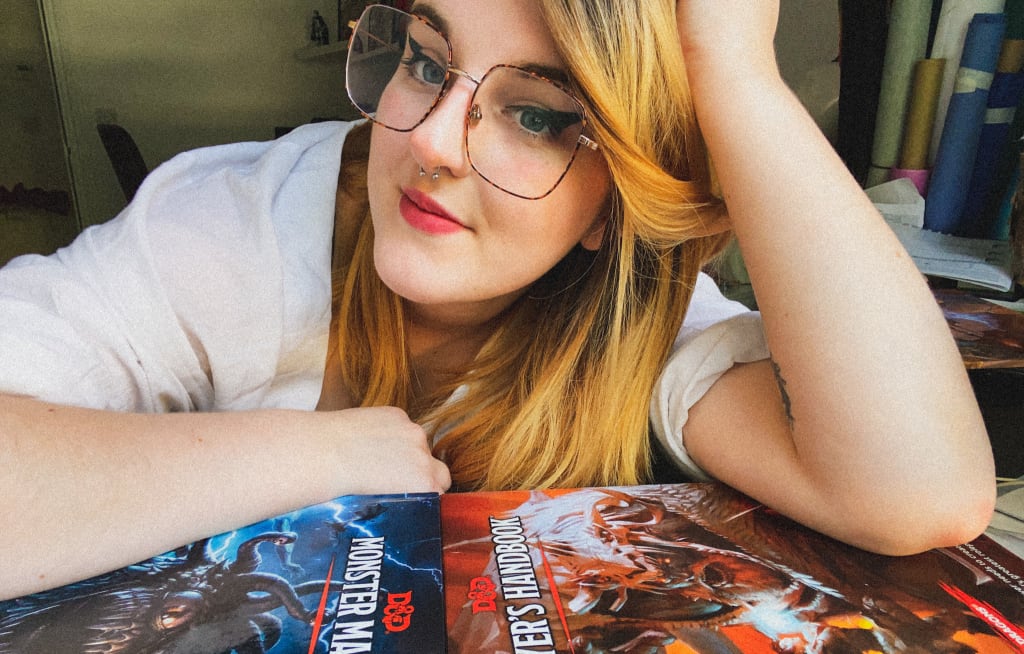5 Ways To Start your D&D Game Smoothly
From playing with strangers to fun with friends - no one wants the first roll to be their worst.

Stepping behind the Dungeon Master’s screen is scary. If you’ve never played before, then the heavy Dungeon Master’s Guide might be an intimidating tome. Even long-time players, who feel they know the ins and outs of the game pretty well soon realise that stepping into the DM-ing seat is an experience unlike anything that has come before.
Suddenly, you’re no longer responsible for just one character, one spell sheet (if that) and only one person’s opinion and backstory - now, there’s hordes of NPC’s, hundreds of creatures and enemies, as well as an overarching narrative and an infinite number of plot beats. Oh - and as many characters, backstories, spell sheets and opinions as you can dare to have players. (I like to settle somewhere around 5, not including myself).
From one-shots (that become two-shots) to long term campaigns, it’s the DM’s responsibility to ensure all the players are having fun - and that happens most often when the game is running smoothly. So, here are 5 tips to help you start your game as you mean to go on…
1 - Host a Session 0
Okay, I know this one sounds obvious - but you’d be surprised how many people skip it and end up with disjointed, parties with characters all coming from different backgrounds, with no reason to be on the quest together other than A) gold, or B), because the Questgiver told them to. It leads to party friction and can slow down the game immensely whilst you have to then do extra work in giving them fantasy team-building exercises, and whilst the players search for something in common (and there will always, undoubtedly, be one loner type who doesn’t want to get along with anyone).
Session 0’s need to be approached with an open mind - try to dissuade your players from having pre-established concepts or fully-fledged characters in their minds before they set stats to paper. Encourage them to create a balanced party, or at least a diverse range of classes, and try and build preliminary bonds with at least one other character at the table.
Outside of a session 0, try and create a group chat or even a Facebook or Discord group - somewhere that you and your players can upload or post discussion topics or even artwork and items to save for later or that are needed for reference, such as maps or important NPC’s. This will also encourage your players to talk to each other - if you’re not all already close friends - between games, encouraging party unity!
2 - Come up with Rumours!
After your players have come up with their basic concepts at session 0, let them go away and work on the fine details of their backstory and motivations, and - especially if starting at a higher level (3 or above), as by this point characters & adventurers do have at least some repute. Don’t even just leave it up to the players - you as the DM can, and probably should come up with 4 or 5 rumours about the main NPC’s in your campaign. Especially if you are dealing with a traditional single or main quest giver; it’ll encourage your players to be invested in the characters you bring the story, by giving them a chance to form an opinion before you ever sit down to play.
The rumours don’t all have to be true - as a rule of thumb, I encourage 2 truths, 2 complete lies and one that’s perhaps a twisted version of reality. You may want the players to run these rumours past you first (in case one character tries to insist that killing Acerak at level 2 is completely factually true) - but I tend to find that players know the scope of their characters and concepts. And, of course, if killing Acerak at level two is at least partially a lie, but has some nugget of truth somewhere… bam - there’s your conversation starter.
And, of course, they don’t have to be big rumours. One player of mine had a rumour that her name was spelt one way, when in fact it was the other. Another’s rumour suggested that their character was 8ft tall when they were actually 6 - the party’s reaction upon first meeting? “I thought you’d be taller.” Including rumours is a great way to break the ice and create instant character moments, that I promise your players will latch on to for the rest of the game.
3 - Tease Your Players With What to Expect
Ideally, before session 0 - no, definitely before session 0. In your Facebook group or discord - or, if you're hosting on Roll20, there are lots of opportunities for info sharing there - share an opening teaser trailer or premise of your game. Think of it like writing a blurb for the epic adventure you’re about to have - what is the status quo of the world, what factions and NPCs are going to be important?
This can also be used to give your players a sense of how you like to play as a DM. For example, I am running a version of Baldur’s Gate: Descent into Avernus that skips out all of the Baldur’s Gate/Elturel part of the story in favour of my own origins. To help my players understand how this diverted from the book, I pitched it to them as “Suicide Squad meets Mad Max and Oceans 8” - drawing references from pop culture to reveal that it was a heist game, but would have many chaotic and oftentimes violent elements. It piqued their interest and informed the type of characters they wanted to create when it came to session 0.
4 - Know How the Story Ends
… and then promptly forget it.
D&D might be chaotic and unpredictable - that’s half the fun - but you should have an idea about how you want your campaign to end. It might be something simple; if your players are on a quest to get an item, the end of the campaign might be them getting the item. It may be that they get the item, and in the immortal wisdom of the Dungeon Master’s Guide, Tiamat might rise from her prison in Avernus.
Largely though, as the DM you should have an ideal outcome, even if it gets abandoned by the wayside due to your player’s attitudes and tendency to fixate on some of the most random and seemingly unimportant plot threads (it happens to us all, even Matt Mercer.) Having an idea of the end will help you inform the beginning and guide your players through long enough until they feel confident to embrace the chaos.
4 (and a half) - Read Ahead
Not really a whole note, but if you’re running book campaigns - read ahead! I recommend at least skimming through the whole adventure guide at least once.
And it goes without saying (but I’ll say it anyway) that you should re-read at least a handful of pages before each session. Both back over where you’ve been, and ahead to where you’re going! Having to stop and check the book isn’t exactly a major crime, but it can disrupt the flow if you’re dealing with a specific encounter.
5 - Do a Practice Run
This is not the same as session 0, though they may overlap slightly. Regardless of how you’re going to be playing, if you’re able to test out the space, or programs before it comes to the big event, the better your first game - and campaign in general - is going to go.
Are you playing online? Test your microphones, cameras, map-sharing abilities, internet speed, play-space and more. You don’t want to be rushing in the 30 minutes before the game starts, struggling to clear a space on your desk for dice - nor do you want the first half of session 1 to be spent repeating “can you hear me” and furiously texting each other instead of playing.
But games held in the real world equally need to be prepped for (especially as in-person games become more available to us!). It can be as small as sitting in every seat around the table to make each player has space to roll their dice and put their drinks (preferably not in the same space), or it can be more complex and working on lighting effects or testing out your soundtracks. I had a DM who used to stick a Bluetooth speaker in the drawers of their coffee table (where we had the map), centre the soundtrack, and give the room some ambience.
And, as always, try to do a quick clean of your space before you invite others into it - a little wipe down of the table and hand soap in the bathroom goes a long way. (You’d be surprised…)






Comments
There are no comments for this story
Be the first to respond and start the conversation.